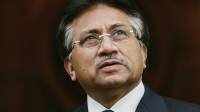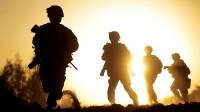On the evening of 17th November, Interior Minister Chaudhry Nisar,at the tail end of a briefing on the grave security situation in Rawalpindi, announced that the government is pursuing a case of treason against former President General Musharraf under Article 6 of the Constitution.
Most people were surprised and intrigued by both the timing, and minister’s long, defensive introductory remarks. Considering the gravity of the offence and its sensitivity, it clearly deserved a stand-alone treatment.
Of course, violators of the constitution cannot go unpunished, and justice has to be applied across the board. General Musharraf has to be made answerable for his actions. This course of action is also necessary to act as a deterrent for any future military leader with ideas of usurping a democratically elected government.
A civilian democratic government cannot be overthrown on the whims of a coterie of military commanders – as has been the practice in the past – and instead should be replaced through democratic means if it fails to deliver. Therefore, it is not the principle that is being questioned, but the timing and manner in which the case is being handled.
At such a critical time for Pakistan, the government should devote all of its attention to countering the major challenges it faces. Currently, the army is engaged in fighting insurgency in FATA, dealing with the separatist movement in Baluchistan, dowsing sectarian violence, countering land and drug mafia outfits, assisting the civilian administration in restoring order in Karachi and other parts of Pakistan,and guarding the eastern border. Burdening the institution with issues that could have psychological and political implications does not demonstrate good judgment or a prudent sense of priorities.
It would have been more appropriate for Prime Minister Nawaz Sharif to have waited for an opportune moment to initiate legal proceedings against the former military leadership. In Turkey, the government prioritised strengthening of the national economy, raising its international profile and gaining the support of the people before taking similar action against its former rulers.
The government should also be clear about what it hopes to achieve by this course of action, aside from bringing the accused to justice. Will the trial contribute toward better civil-military relations, restore balance and uphold the supremacy of the civilian leadership?
Sharif probably wants to set a precedent that should act as a deterrent for any future adventurist. But is his government really so sure of itself, that it will successfully ward off the fallout? If so, the people do not seem to share these convictions. The first reaction to news of the trial was that it is a ruse to deflect attention from Pakistan’s poor law and order situation and rising inflation.
As Musharraf has been singled out in the trial, many attribute the action to a vendetta on the part of the prime minister. This feeling arose because military rule in Pakistan is the product of many factors, including institutional decay, erosion of the rule of law, the mediocrity and corruption of our political leaders and the misplaced self-importance of our military institutions.
The government seems intent on prosecuting Musharraf alone, and is treating the case as a clean, surgical operation. However, targeting Musharraf will not satisfy the demands of equitable justice. After all, he did not act alone, and his abettors should not be allowed to go scot-free. Justice also demands that the responsibility be shared not only between the military hierarchy of the time but also among the judiciary and politicians who supported the military rule. Once court proceedings commence, they may take on a life of their own, and the government may not be able to retain control over events.
The original sin was committed in October of 1999,but the government is not prepared to look that far back, as the takeover was condoned by the court and legitimised by parliament. One can understand that it does not make sense to look further back, beyond Musharraf, as all those military dictators – General Ayub, Yaha, and Zia ulHaq –are no longer alive, and their associates are either dead or too old to be tried as abettors.
But this line of argument does not hold true in case of General Musharraf. Moreover, his defence lawyers will do their best to widen the net by implicating others in the decision to declare the state of emergency.
Those who are familiar with the dynamic of military rule will understand that, once a military leader usurps power, it becomes difficult for him to relinquish it. It is not only that he has tasted power, but also that it becomes risky to transfer power back to democratic processes, as at this point, he is likely to face legal action. The situation is analogous to that of someone riding a tiger,only to find it too dangerous to dismount. Thus, the declaration of emergency of 2007 has to be viewed as the offshoot of the original crime of October 1999.
There is, of course, an alternative school of thought suggesting that this was the time for showing political maturity by setting aside legal proceedings. This course would have helped the current civilian leadership to retain the moral high ground. This approach may be idealistic, and would require a high level of confidence in a civil leadership that may take a long time to develop. For now, the best we can hope for in the event General Musharraf is convicted is that the prime minister shows magnanimity,and that the president pardons him.
The writer is a retired Lt. General and a prominent commentator on issues related to politics and defence.





















